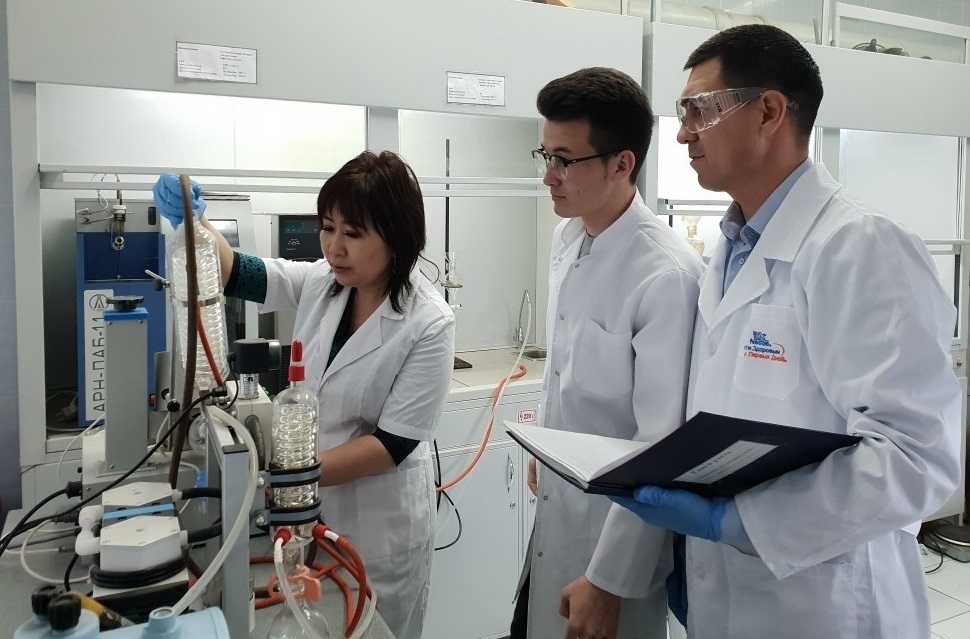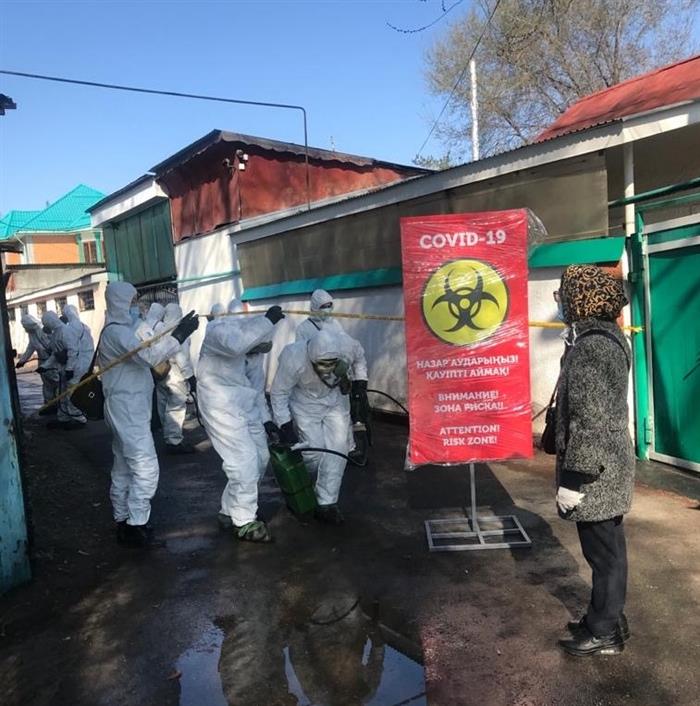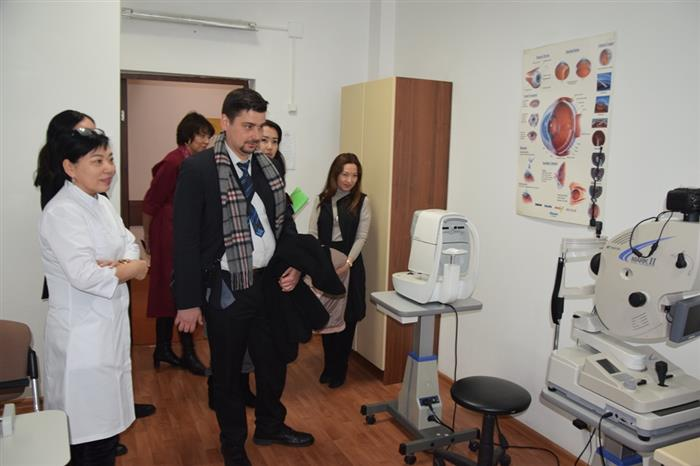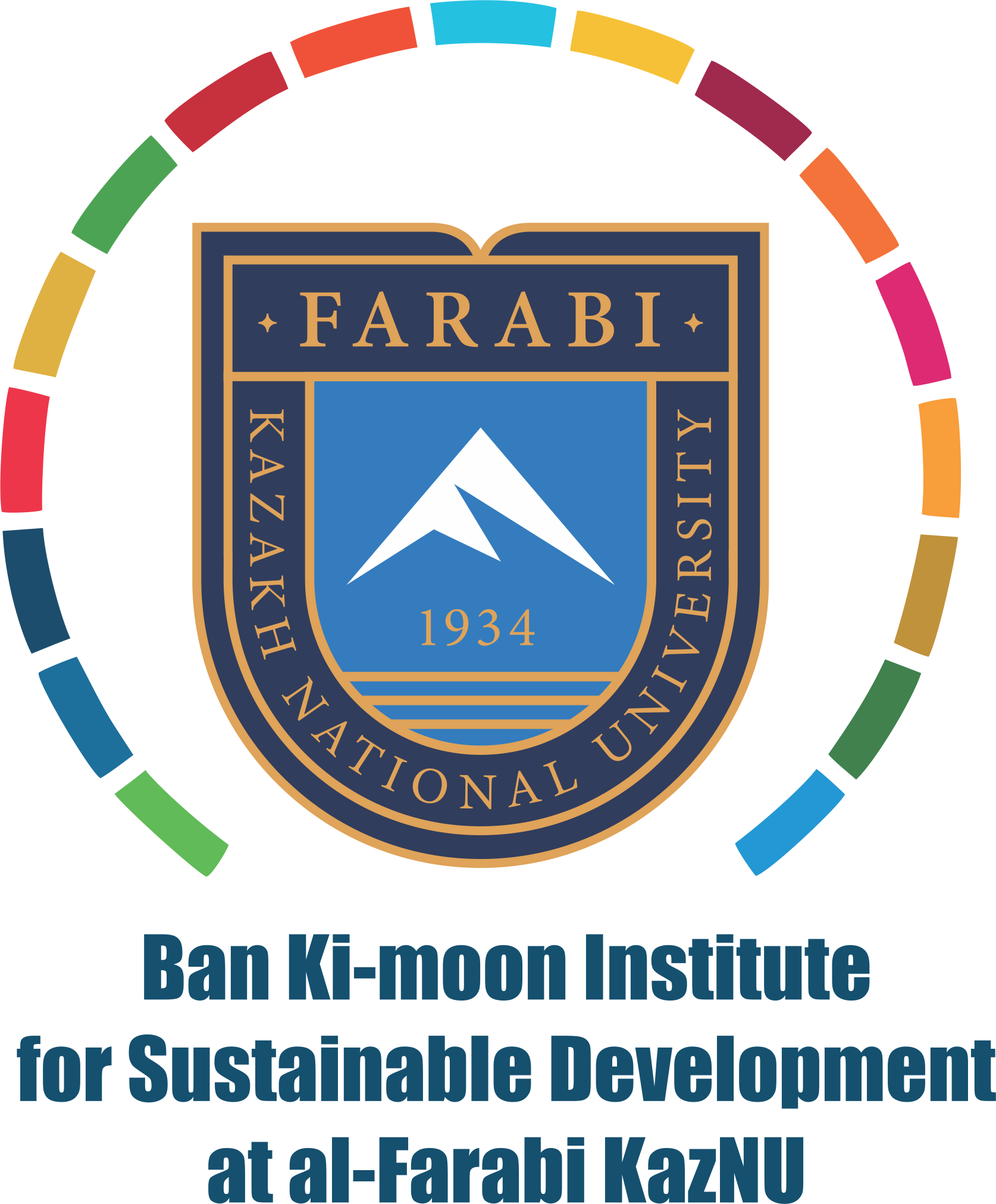COVID-19 in Kazakhstan & Al-Farabi Kazakh National University’s input in fighting off COVID 19
The COVID-19 pandemic was confirmed to have reached Kazakhstan on 13 March 2020. On 15 March, President of Kazakhstan Kassym-Jomart Tokayev declared a state of emergency from 16 March to 11 May 2020. Many holidays such as Nowruz and the Victory Day military parade were cancelled.
For the duration of the state of emergency, the following measures and time limits were introduced:
- The protection of public order, the protection of especially important state and strategic, sensitive and specially protected objects, as well as objects ensuring the vital activity of the population and the functioning of transport.
- Limited function of large trading facilities.
- Suspended activity of shopping and entertainment centers, cinemas, theaters, exhibitions and other objects with large crowds of people.
- Large-scale sanitary and anti-epidemic measures, including those, requiring the participation of structural units of the Ministry of Defense and internal affairs bodies operating in the field of sanitary and epidemiological welfare of the population.
- Ban on conducting entertainment, sports and other public events, as well as family, commemorative events;
- Restrictions on entry into the territory of the Republic of Kazakhstan, as well as on exit from the territory, with the exception of personnel of the diplomatic service of Kazakhstan and foreign states, as well as members of delegations of international organizations traveling to the country at the invitation of the Ministry of Foreign Affairs of Kazakhstan.
“Science Fund” JSC organized and held “Stop Coronavirus” contest to find effective solutions to prevent a pandemic and overcome its consequences. Al-Farabi KazNU researchers took part in the event and presented their proposals for combating coronavirus.

The competition was held online on April 13-15, 2020, and was broadcasted on Facebook on the BILIM PLUS educational platform.
The jurors found KazNU’s projects on development of biodegradable hand protection, new immunostimulators and antiviral drugs, as well as projects on production of disinfecting cleansing agents and chamomile antiseptic to have a high degree of effectiveness. That was the reason to submit KazNU’s developments along with other projects that participated in the finale for consideration by the Government and interested investors.
Overview of KazNU's input
The project titled “Development of new immunostimulators for protection against coronavirus from Spirulina platensis cyanobacteria biomass and its various combinations with useful plants,” led by Professor Bolatkhan Zayadan, emerged as the victor in the jury evaluation competition. Additionally, it claimed the top spot in the “People’s choice” category, amassing the highest number of votes – 653. This project is geared towards devising a technology for producing novel immunostimulators endowed with antibacterial, antiviral, probiotic, and antioxidant properties derived from Spirulina platensis cyanobacteria biomass and its assorted combinations with beneficial plants to combat coronavirus.
The project revolves around the deployment of a potent and secure triple formula utilizing natural resources from Nelumbo nucifera, Angelica keiskei, and Vitis vinifera, which exhibit the most promising therapeutic efficacy against COVID-19. This endeavor aims to introduce the first potent herbal medication against COVID-19, incorporating a blend of non-toxic medicinal and culinary plants. Notably, this medication will be composed of edible herbs, ensuring patient safety, and will offer a swift resolution owing to its unique formula, which operates through various mechanisms, including targeted inhibition of beta-coronaviruses.
 Herbal medicines are generally more cost-effective than modern treatments, thereby ensuring the affordability of the new medication while simultaneously bolstering the immune system. Subsequent to the contest outcomes, “Science Fund” JSC, in collaboration with other stakeholders, is actively engaged in further advancing and implementing the proposals.
Herbal medicines are generally more cost-effective than modern treatments, thereby ensuring the affordability of the new medication while simultaneously bolstering the immune system. Subsequent to the contest outcomes, “Science Fund” JSC, in collaboration with other stakeholders, is actively engaged in further advancing and implementing the proposals.
The research team at KazNU’s informatics department laboratory has devised a program capable of promptly detecting the presence of masks on individuals’ faces and gauging the distance between them. This innovative solution empowers CCTV cameras to identify individuals who breach quarantine regulations.

Young professionals at KazNU’s scientific and technological park, in collaboration with scientists from the Scientific Research Institute of Combustion Problems, have introduced a protective face shield named ALFASHIELD.
Amidst the pandemic, numerous technology firms have embarked on creating various iterations of face shields for healthcare personnel, offering their designs to organizations interested in crafting their own versions. Many of these models are produced using 3D printing technology, a process that typically consumes 1.5-2 hours per shield, rendering it somewhat time-intensive.
However, a group of student researchers from KazNU has devised their own method for manufacturing antivirus protective shields, boasting a significant advantage in terms of production speed. Unlike traditional methods requiring a 3D printer, this technology accelerates the manufacturing process by 5-6 times. As per the developers, two individuals can produce up to 100 protective shields per day using this method. Given the rapid increase in the number of infections both domestically and globally during the pandemic, this represents a crucial factor.

With the onset of the pandemic, ICESCO initiated an international call for scientific and technological projects aimed at combating COVID-19 across member universities of the organization.
Al-Farabi KazNU’s project stood out among the submissions, earning recognition as one of the finest and securing funding. The project centers on the development of next-generation universal antiseptics and disinfectants. The funds provided by ICESCO were utilized to procure a portion of the production equipment.
 Chemists from Al-Farabi KazNU employed an electrochemical method to produce sodium hypochlorite-based antiseptics. These antiseptics boast a broad spectrum of applications in medical, municipal, and household settings. A notable advantage of these disinfectants lies in their cost-effectiveness, attributed to the utilization of locally sourced Kazakhstani raw materials in production. Additionally, patented innovations by KazNU scientists, including highly durable ruthenium oxide titanium anodes, contribute to reducing production costs significantly.
Chemists from Al-Farabi KazNU employed an electrochemical method to produce sodium hypochlorite-based antiseptics. These antiseptics boast a broad spectrum of applications in medical, municipal, and household settings. A notable advantage of these disinfectants lies in their cost-effectiveness, attributed to the utilization of locally sourced Kazakhstani raw materials in production. Additionally, patented innovations by KazNU scientists, including highly durable ruthenium oxide titanium anodes, contribute to reducing production costs significantly.
The resulting disinfecting solution is being utilized to sanitize university buildings and has also been distributed among employees and vulnerable segments of the population.
Over 50 undergraduate and doctoral students from Al-Farabi KazNU’s Faculty of Medicine and Health Care played a pivotal role in combatting the coronavirus. They actively contributed to the fight against the deadly virus by serving in hospitals that admitted infected individuals and those in contact with them.
Faculty members from all Clinical Departments of the Faculty of Medicine demonstrated their commitment to saving lives and preserving health by providing treatment to patients. Infectious disease specialists, pulmonologists, and resuscitation experts worked tirelessly around the clock in medical facilities across Almaty. Epidemiologists were stationed at checkpoints and restricted areas, with many assisting in the transportation of patients and individuals in close contact.

Since March 2021, KazNU carries out vaccinations for the employees of the University. The vaccine used for this purpose is Sputnik V, developed by the Gamaleya Research Institute of Epidemiology and Microbiology (Russia).
Pressing Issues on Global Health
In February 2020, Dr. Yanis Ben Amor, the Director of the Center for Sustainable Development at Columbia University’s Earth Institute, paid a visit to KazNU Al-Farabi as part of the MDP Global Classroom Program. During his visit, he engaged in a meeting with the university leadership, toured the campus, and participated in a round table discussion on the topic of “Pressing Issues on Global Health.”
This event was coordinated by the United Nations Academic Impact Hub on Sustainability at KazNU Al-Farabi, in collaboration with the Ban Ki-moon Institute for Sustainable Development and the Earth Institute at Columbia University.
The round table discussion focused on “Pressing Issues on Global Health” and included Master’s and PhD students from the Faculty of Medicine and Public Health, as well as scholars, experts from public committees, and representatives from the media.
Dr. Yanis Ben Amor expressed his satisfaction with the involvement of Al-Farabi students in the MDP Global Classroom program, which he had been teaching on sustainable development and global health for almost two years. He emphasized the importance of collaborative efforts through the MDP Global Classroom platform in addressing global challenges and achieving Sustainable Development Goals (SDGs).
 During the event, Dr. Yanis Ben Amor delivered an informative lecture and shared his experiences on pressing issues in the field of medicine and healthcare. He also took the time to answer questions from the students. Additionally, Dr. Assel Terlikbaeva, the Director of the Center for Global Health Studies in Central Asia at Columbia University, and Prof. Zhanna Kalmataeva, the Dean of the Faculty of Medicine and Public Health at KazNU Al-Farabi, played significant roles in the round table discussion.
During the event, Dr. Yanis Ben Amor delivered an informative lecture and shared his experiences on pressing issues in the field of medicine and healthcare. He also took the time to answer questions from the students. Additionally, Dr. Assel Terlikbaeva, the Director of the Center for Global Health Studies in Central Asia at Columbia University, and Prof. Zhanna Kalmataeva, the Dean of the Faculty of Medicine and Public Health at KazNU Al-Farabi, played significant roles in the round table discussion.
Following the event, the participants exchanged views and committed to enhancing cooperation in implementing the 17 SDGs. They particularly emphasized collaboration with the Center for Sustainable Urban Development at the Earth Institute within the framework of the innovative project titled “Smart City on the Silk Road.”
